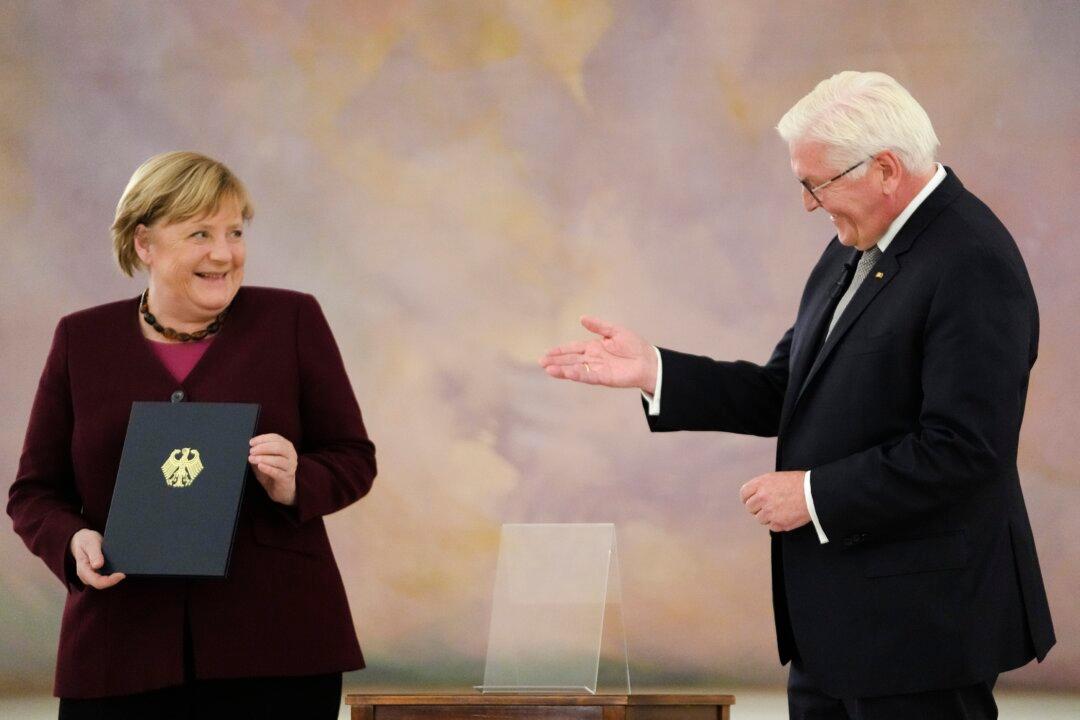BERLIN—Angela Merkel took a step closer to political retirement Tuesday after receiving her formal dismissal certificate from the post of chancellor after 16 years in office, though she will lead a caretaker government until her successor is sworn in.
Hours earlier, Merkel attended the opening session of Germany’s new parliament in Berlin, taking a seat in the VIP gallery as the recently elected lawmakers met for the first time. Merkel, who first won a seat in the Bundestag 31 years ago, did not run again in the Sept. 26 election.





